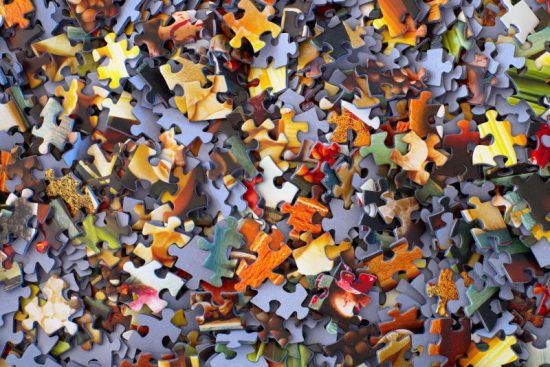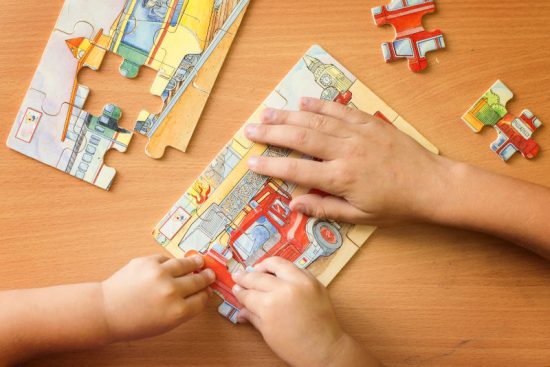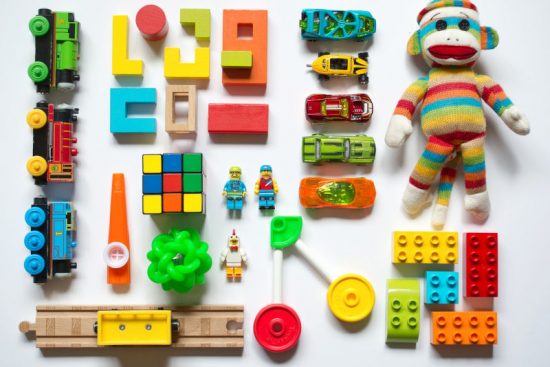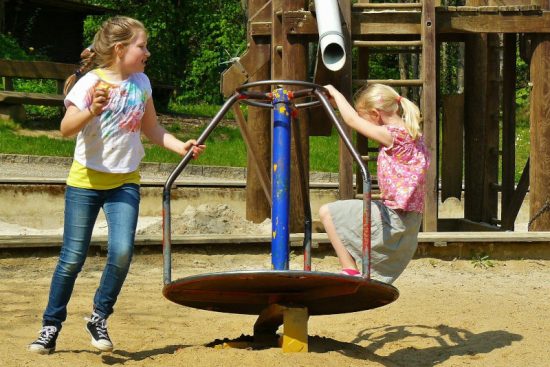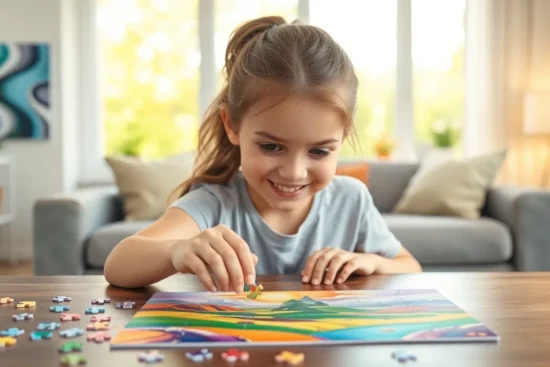
Puzzles for 8-year-olds are more than just a way to keep kids entertained—they’re a secret weapon for brain development. Imagine a world where kids are not only having fun but also sharpening their problem-solving skills and boosting their creativity. Sounds like magic, right? Well, it’s time to turn that magic into a reality!
Puzzles For 8 Year Olds
Puzzles provide numerous advantages for eight-year-olds. Engaging with puzzles promotes essential skills that aid in children’s development.
Cognitive Development
Cognitive development benefits significantly from puzzle engagement. Solving puzzles requires critical thinking, which stimulates brain activity. Memory retention improves as children remember shapes, colors, and patterns. Additionally, visual-spatial skills enhance with each completed puzzle, allowing for better navigation of physical space. Children also learn to focus and concentrate, essential skills for academic success. Puzzles promote perseverance by encouraging kids to continue working through challenges, fostering resilience.
Enhancing Problem-Solving Skills
Problem-solving skills become sharper with regular puzzle activity. They allow eight-year-olds to approach challenges methodically. Analyzing pieces and determining how they fit teaches logical reasoning. Children learn to create strategies for completion, enhancing their planning abilities. Working on puzzles in a group setting encourages collaboration, which improves social problem-solving skills. Engagement with various puzzle types also exposes them to different problem scenarios, increasing adaptability. Overall, puzzles serve as practical tools for developing effective problem-solving strategies.
Types Of Puzzles For 8 Year Olds
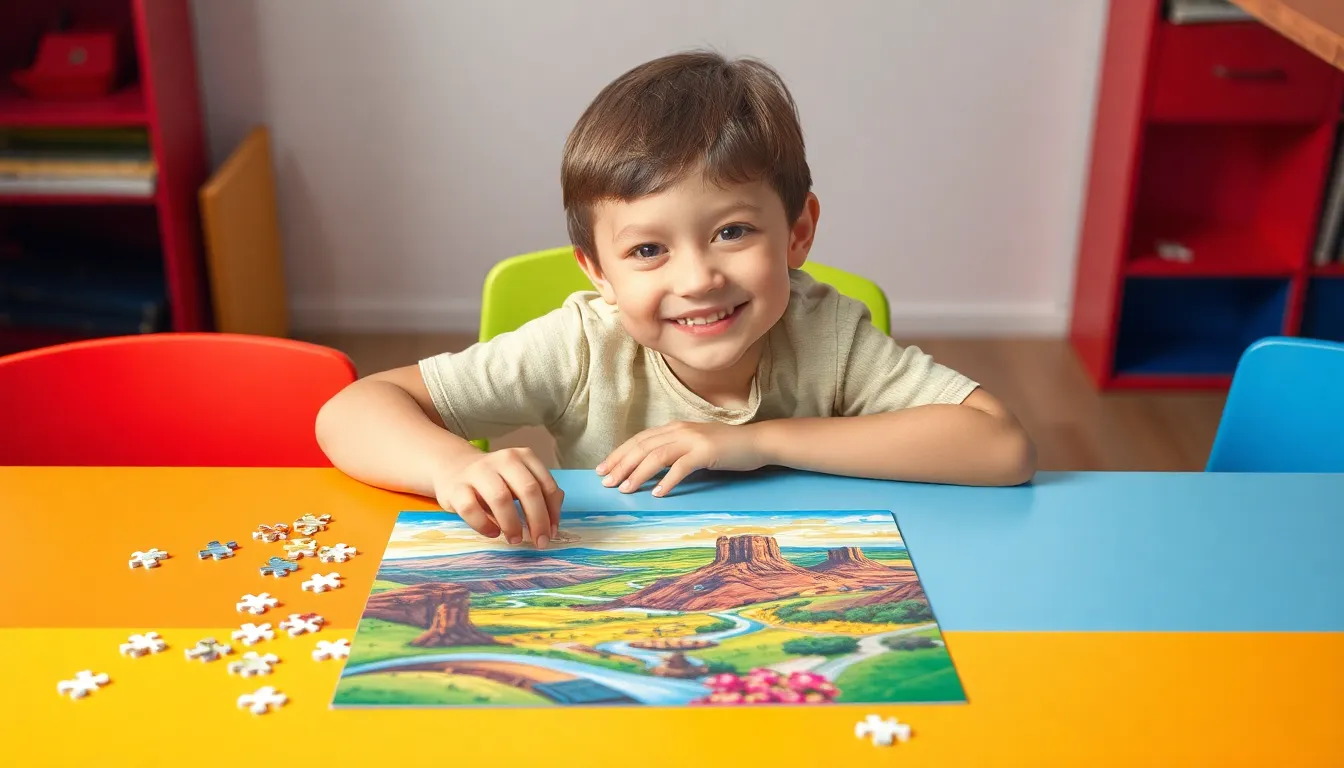
Various types of puzzles capture the interest of 8-year-olds, each offering unique benefits and challenges. Engaging in different puzzle formats enhances cognitive skills while keeping them entertained.
Jigsaw Puzzles
Jigsaw puzzles involve fitting together interlocking pieces to form a complete picture. These puzzles range in complexity, accommodating both basic and advanced skill levels. Children develop visual-spatial awareness while working on these puzzles, as they learn to recognize patterns and shapes. Completing a jigsaw puzzle cultivates patience and perseverance, essential traits for overcoming challenges. Many themes exist, from animals to landscapes, catering to diverse interests and sparking curiosity.
Crossword Puzzles
Crossword puzzles challenge young minds through wordplay and vocabulary enhancement. They provide clues that prompt children to think critically about language and meaning. As kids engage in solving clues, they expand their vocabulary and improve spelling skills. These puzzles encourage collaboration, as friends or family can work together to generate answers. Various difficulty levels are available, making them suitable for different ages, ensuring that children remain motivated and engaged.
Sudoku
Sudoku puzzles present numbers in a grid format that requires logical reasoning. Children fill in squares, ensuring that each row and column contains unique digits. Engaging with Sudoku strengthens problem-solving skills and enhances concentration. There are multiple difficulty levels, allowing children to gradually build their skills. Additionally, Sudoku promotes mathematical thinking, making it an enjoyable way to apply numerical concepts in an engaging way.
How To Choose The Right Puzzle
Selecting the right puzzle for an 8-year-old involves carefully considering several factors to ensure its educational and entertainment value.
Considering Skill Level
Skill level plays a crucial role in choosing puzzles. Puzzles designed for beginners feature fewer pieces and simpler images. These options provide a foundational challenge, building confidence. Intermediate puzzles increase difficulty with more pieces and complex designs, fostering critical thinking. Advanced puzzles offer intricate themes and a higher piece count, promoting problem-solving skills. It’s essential to match the puzzle’s difficulty to a child’s ability to maintain engagement while enhancing skills. Choosing the correct level supports cognitive growth without causing frustration.
Interests And Preferences
Interests and preferences significantly influence puzzle selection. Themes like animals, space, or favorite characters engage kids by connecting to their hobbies. Colorful designs and popular franchises spark excitement and motivation to solve puzzles. Exploring different shapes and sizes also adds variety, promoting continued interest. Discussing favorite hobbies with the child can tailor the puzzle choice to their tastes, enhancing the overall experience. Incorporating their interests makes puzzle-solving enjoyable and can encourage repeated practice, reinforcing learning opportunities.
Tips For Making Puzzle Time Fun
Puzzle time can be an enjoyable experience by incorporating various strategies. Engaging children in collaborative environments enhances learning and boosts interpersonal skills.
Group Activities
Working in groups makes puzzle-solving enjoyable and interactive. Kids benefit from sharing ideas and strategies while collaborating on challenges, which fosters teamwork. Puzzles can be tackled in pairs or small teams, promoting social interaction and communication. Each child brings different strengths, helping them learn from one another. This approach supports cognitive development and encourages perseverance while solving complex puzzles.
Incorporating Rewards
Setting up a reward system adds excitement to puzzle time. Kids respond positively to incentives for completing puzzles, such as earning small prizes or privileges. Offering praise also reinforces accomplishments. Celebrating milestones, like finishing a challenging puzzle, motivates children to take on new challenges. Encouragement transforms puzzle-solving into a fun and rewarding experience, prompting kids to engage with puzzles more frequently.
Conclusion
Puzzles for 8-year-olds offer a wealth of benefits that extend beyond mere entertainment. They play a vital role in developing essential cognitive skills while fostering creativity and critical thinking. By selecting the right puzzles tailored to a child’s interests and abilities, parents can create engaging learning experiences that promote perseverance and resilience.
Incorporating fun elements like teamwork and rewards can make puzzle-solving a cherished activity. This not only enhances the learning experience but also encourages children to tackle new challenges with enthusiasm. Ultimately, puzzles serve as a powerful tool for growth, equipping kids with skills that will benefit them in school and beyond.

